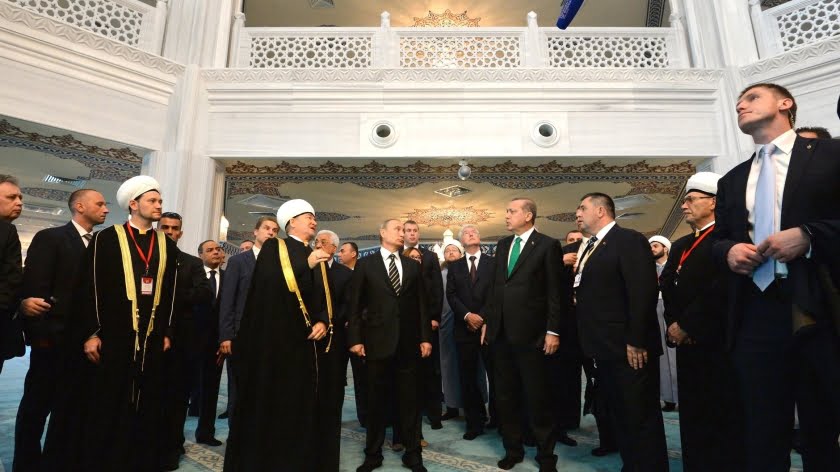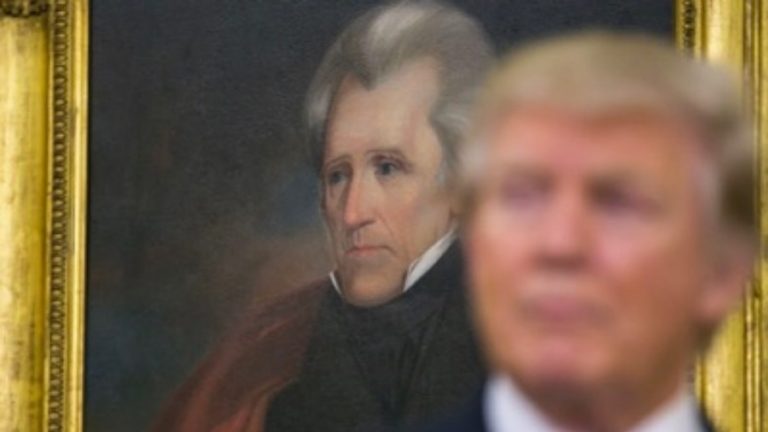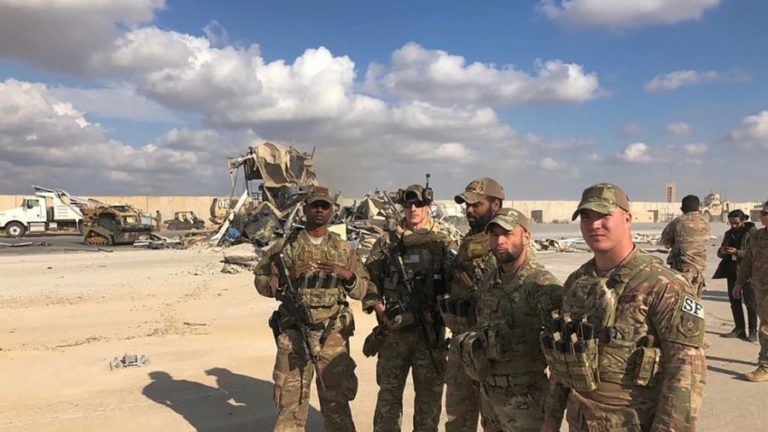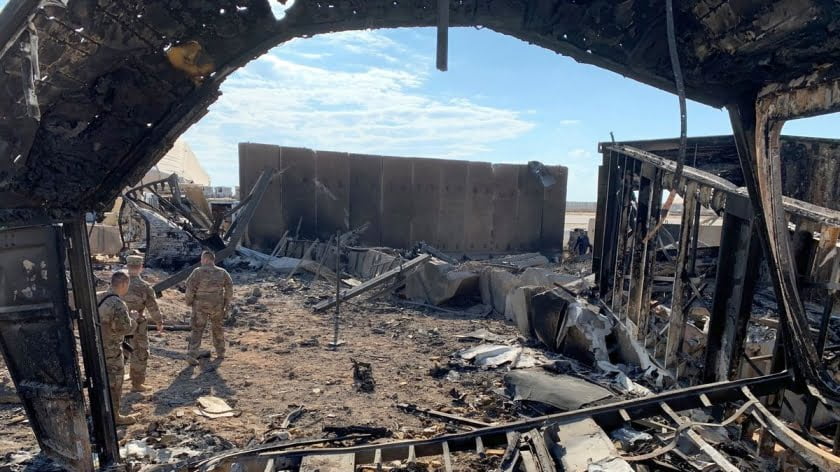Recent Events Show That Shadowy Forces Want to Spark a “Clash of Civilizations”
The recent terrorist attacks in New Zealand and Sri Lanka strongly suggest that there are shadowy forces that want to spark a “Clash of Civilizations” between Christianity and Islam, but the the diverse and civilizationally experienced Great Powers of Russia and Pakistan prove that this scenario is far from inevitable in the Silk Road Century.
Catalyzing A “Clash Of Civilizations”
The one thing that the New Zealand and Sri Lankan terrorist attacks have in common other than the large number of worshipping civilians that were killed is that the perpetrators tried way too hard to have their attacks spark a “Clash of Civilizations” between Christianity and Islam. The Australian terrorist responsible for the New Zealand attacks scrawled the names of famous Balkan figures and battles associated with the wars against the Ottoman Empire onto his guns and gear before gunning down dozens of Muslims, while the Sri Lankan terrorist network specifically targeted Christians and luxury hotels during Easter in order to get the majority-Christian West’s attention. Both series of terrorist attacks were deadly provocations meant to incite Christian-Islamic animosity and advance the “Clash of Civilizations” blueprint for dividing and ruling the Eastern Hemisphere in the 21st century.
Different Forces, Same Agenda
That’s not to imply that there’s any degree of coordination between the two related terrorist attacks and those who planned them, but just that each of the culprits have their own ideological reasons for independently pursuing the same ends. Nevertheless, the narrative is already being spun that the Sri Lankan attacks were “revenge” for the New Zealand ones, a very dangerous interpretation of events that lends “credence” to the “Clash of Civilizations” theory and is designed to widen Christian-Muslim distrust of one another’s communities. The vast majority of believers harbor no animosity against their counterparts and are well aware that the recent terrorist attacks were carried out by extremists who don’t represent anything close to the conventional views of each community, but the problem is that the Mainstream Media is stoking the flames regardless.
Just like with the terrorists, different outlets have their own reasons for doing this. Some want to support the fearmongering platform of incumbent politicians (e.g. Indian Prime Minister Modi during the ongoing month-long electoral process in his country), while others want to generate a climate of uncertainty that their state backers could then exploit. Whatever their motivation is, it’s difficult to escape the notion that influential forces are pushing the narrative that Christianity and Islam are “destined” to clash, basing their implied or directly stated predictions off of the two attest high-profile terrorist attacks that were committed by radicalized individuals who disingenuously portrayed themselves as representing their respective religious communities. This is a very disconcerting realization and one that naturally strikes fear in the hearts of many.
Part of the reason why it’s so terrifying is because it carries with it the foreboding hint that the recent events are part of a larger preconditioning strategy to prepare the global population for something even worse that might be about to come, which might in all actuality be an increase in religiously branded terrorist attacks (whether Christian or Muslim), majority-on-minority “reprisal” attacks, and the resultant proliferation of the “Clash of Civilizations” narrative to the point where it’s taken for granted. All of the aforementioned could horribly result in the creation of a self-sustaining cycle of inter-civilizational destabilization that threatens to throw the Eastern Hemisphere into chaos at precisely the point when China’s Belt & Road Initiative (BRI) is tying its many diverse members closer together.
“Responsible Globalization”
While there will inevitably be many who buy into the increasingly populist view of “self-segregation” (disguised as “nationalism”, usually of an overt ethnic character) and the “isolationist” policies that it entails, that supposed panacea would really be a geopolitical poison that would divide Afro-Eurasia and make it much more susceptible to America’s system of “Lead From Behind” proxy management, to say nothing of the potentially catastrophic consequences if this eventually leads to a large-scale inter-civilizational conflict. The real answer, therefore, rests in countries and their people resisting the “siren songs” of “self-segregation” and “isolationism”, instead embracing “responsible globalization” which would protect their native cultures from “Weapons of Mass Migration” and other threatening civilizational changes associated with their increased integration into the “world system” throughout the Silk Road Century.
The Russian & Pakistani Case Studies
China’s Russian and Pakistani partners in the new Multipolar Trilateral are excellent examples of how this could work in practice. Both Great Powers are poised to experience unprecedented connectivity with other civilizations given their transit location along two of BRI’s most important initiatives, the flagship project of CPEC in the global pivot state of Pakistan and the fledgling but nevertheless very promising Eurasian Land Bridge across Russia. Each of these will connect a variety of civilizations together across each transit state’s territory as the host country facilitates China’s trade with the rest of the world, meaning that they must be prepared to implement “responsible globalization” otherwise they’re sure to be wrecked by intensified identity conflicts as a result.
To their credit, Russia and Pakistan are very diverse countries whose people have centuries of experience interacting with other civilizations, specifically the Islamic and Hindu ones respectively, so they’re less likely to be destabilized by these inevitable inter-civilizational Chinese-facilitated linkages across their territories than ethnically homogeneous states that rarely interacted with other civilizations throughout their histories (especially recent ones). In fact, “Be It From Birthrates Or Migration, Russia’s About To Greatly Increase Its Muslim Population” to the point where approximately 1/3 of its people are expected to practice Islam within the next 15 years, though this profound socio-cultural transition will probably proceed smoothly so long as the state successfully implements the main points of President Putin’s 2012 manifesto on ethnicity and migration.
As for Pakistan, its predicted demographic changes might see more Chinese, Africans, and Arabs moving to the country, though it’s unlikely to have much of a significant effect so long as the state ensures that these new arrivals properly assimilate into society and are integrated into the national framework. One very powerful step in that direction would be to prevent the creation of “ethnic ghettos” and ensure that new arrivals don’t congregate all together and replicate some of the same problems that the West has experienced whenever this happened in their part of the world. Another possible problem that might have to be addressed is the negative reaction that some locals might have to the establishment of new housing communities populated almost exclusively by foreigners and the propagandistic narratives that might be spread about these being “colonies”.
Concluding Thoughts
There should be no doubt at this point that shadowy forces are trying to spark a “Clash of Civilizations”, with the latest high-profile terrorist attacks in New Zealand and Sri Lanka being exploited to that end by their practitioners and “useful idiots” who find it “convenient” to go along with this narrative. The Mainstream Media is responsible for fearmongering about this as well, though no far-reaching “conspiracy theory” between them, “deep state” figures, and non-state actors is being implied. Rather, an observation is simply being made, though not with the intent of inadvertently furthering this narrative, but for the purpose of countering it by introducing the concept of “responsible globalization” that the diverse and civilizationally experienced Great Powers of Russia and Pakistan are poised to implement in the coming future in paving the way for pragmatic win-win inter-civilizational exchanges through BRI.
By Andrew Korybko
Source: Eurasia Future







